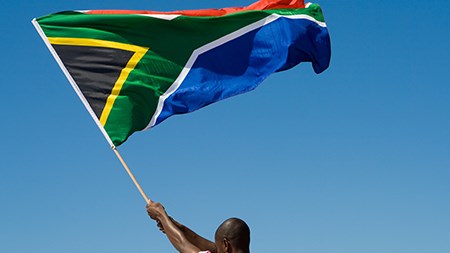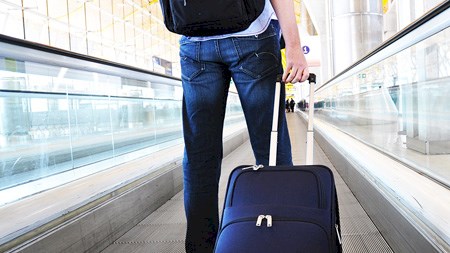While browsing through the various residential property websites (a habit
engrained in me like concrete), I came across a well-known establishment
promoting property in Harare, Zimbabwe. According to this agency, political
stability will return to the country and property prices will surge. I
immediately thought back to a Private Property interview I took part in with
Robert Kiyosaki (author of Rich Dad, Poor Dad); Kiyosaki stated that a
particular country he'd be interested in for property investment would be, none
other than, Zimbabwe. But then again, that was last year…
Given the current events of today, would Robert Kiyosaki be as supportive of
property in Zimbabwe as he was last year when visiting South Africa? I decided
to give one of the property agencies a call to find out their present thoughts
on house prices; I'll admit that quite ironically, the physical address of the
agency somewhat sums up the political structure of the country: 73A (The) Robert
Mugabe Way.
The Robert Mugabe Way
Zimbabwe has received mass amounts of attention following its super-depressed
economic crisis; inflation levels have increased quicker than a firecracker on a
short fuse, hard currency is experiencing its own personal famine, and
agricultural output (not to mention employment numbers) remains highly
discouraging.
I debated the use of data (whether official or unofficial) for fear that by the
time it is published the level may have increased, or decreased, tenfold.
However, it is probably safe to say that, if inflation ends in '000, and demand
and supply are more mismatched than some Hollywood couples, the situation may be
aptly referred to as 'bleak'.
I have made use of official data, as reported by the Reserve Bank of
Zimbabwe, I-Net Bridge and the International Monetary Fund. But please bear in
mind that the black market gains momentum each day and that the unofficial
numbers can differ largely from the official data.
According to IMF estimates, the official consumer inflation rate is estimated to
finish above 6000% in 2008. According to the Reserve Bank of Zimbabwe, the
published figure for the lending rate is well above 600%. Add to this a currency
as volatile as a keg of dynamite, and one wonders if the entire economy will
ever explode. Given these economic indicators as mentioned, what has happened to
house prices?
Although Zimbabwe lacks a formal index for the trend in house prices, we can
use some basic assumptions to draw a high-level view. Thereafter, readers can
assess their personal risk appetite and draw a conclusion as to whether they are
willing take the risk to buy up land north of our border. (Don't be mistaken!
Despite the doom and gloom stemming from Zimbabwe, evidence shows that some
individuals have already begun to invest in Zimbabwe, albeit at a slow rate.)
Zimbabwe House Prices
Residential property sales have remained relatively steady. This is largely
due to a limited stock of housing, and speculators attempting to hedge against
inflation. According to KnightFrank, the average price for a 4 bedroom house in
a good location (such as Ballantyne Park) is roughly Zim$5.25 billion (which,
given the official exchange rate on 17 July 2007, would equal ZAR150 million).
As crazy as these prices may appear, when compared to a candle that sells for
Zim$120 000, it suddenly appears rather relative to the entire pricing system.
Like all property markets, location influences the price. A good location
(such as the example above) will cater to those few citizens that continue to
live lavishly in the present day conditions. Other areas, such as Bulawayo,
average roughly Zim$700 million (which would equate to ZAR20 million). It is
interesting to consider the black market rate of the Zimbabwe Dollar. The
official exchange rate to the US Dollar is pegged at $250, however, before
Robert Mugabe imposed the 50% price cut throughout the economy in July, the
black market rate was fetching up to Zim$200 000 per US Dollar. Now, it sits
somewhere around the level of Zim$100 000 per US Dollar. Using these black
market rates it must be considered how difficult it would be (never mind illegal
and therefore dangerous) for an individual to get this amount of foreign
currency into the country in order to take part in the black market.
In line with a decline in housing stock, rental yields have also increased
(along with everything else). For the past couple of months, landlords have had
to increase their rates by anywhere between 300% - 500%; some even demand rental
yields in the form of foreign currency and/or consumer goods, such as fuel,
paraffin or meat. But since the government imposed a rent freeze on 18 June
2007, we can expect that landlords will come under serious strain (and it's not
as if they weren't previously).
And finally…
The difficulty lies in the fact that Zimbabwe is faced with a situation where
the valuation of assets, such as houses, are difficult to assess given the
current turn of events. I placed a few phone calls to various investors I know
and almost all of them said that they would consider purchasing property in
Zimbabwe as an investment. The general belief is that the basic market
fundamentals (such as stable inflation, money supply and trade) will one day
improve - that demand will once again flourish and property will become very
valuable. Although, the greatest concern is how much time it may take to get to
that point.
I remember Robert Kiyosaki saying that day, "…a great property manager is more
important to me than the real estate". I also remember Robert Mugabe, once
saying that, "…we are no longer going to ask for the land, but we are going to
take it without negotiating".
Do you think this meets the reasonable expectation of 'a great property
manager'?




